Additional notes (click to expand)
Medicinal
Sanguisorba officinalis L. Rosaceae. Great Burnet, Burnet Bloodwort, Pimpinella. Perennial herb. Sanguisorba is from the Latin 'to absorb blood', officinalis to indicate its long time medicinal use. Distribution: W Europe, Orient, N America. Culpeper makes no mention of it in his Physical Directory (1650), but in his English Physitian (1652) he writes at length, praising its virtues (prepared in a glass of claret) in treating diseases of the heart, driving away melancholy, treating discharges, bleeding, ulcers and preventing the plague. Parkinson (1640) calling it 'Pimpinella sive [or] Sangisorba, Burnet' concurs. Modern Chinese herbal medicine uses this in compounds for the topical treatment of third degree burns. Lyte (1578) also refers to its ability to staunch bleeding, adding that drunk with water 'in which [hot] Iron had often been quenched' works well (see Potentilla thurberi). Lyte also reports that 'some have written that its blood staunching effects are performed if 'the herbe alone being but onely holden in a mans hande ...'.
Oakeley, Dr. Henry F. (2013). Wellcome Library notes.
link
Nomenclature
Sanguisorba officinalis L. Rosaceae Cultivar 'Tanna'. Great Burnet, Burnet Bloodwort, Pimpinella. Perennial herb. Sanguisorba is from the Latin 'to absorb blood', officinalis to indicate its long time medicinal use.
Oakeley, Dr. Henry F. (2013). Wellcome Library notes.
link
Geographical distribution
- Asia-Temperate, Caucasus
- Asia-Temperate, China
- Asia-Temperate, Eastern Asia, Japan
- Asia-Temperate, Middle Asia, Kazakhstan
- Asia-Temperate, Middle Asia, Kyrgyzstan
- Asia-Temperate, Russian Far East
- Asia-Temperate, Siberia
- Asia-Temperate, Western Asia, Iran
- Asia-Temperate, Western Asia, Turkey
- Europe, Eastern Europe
- Europe, Middle Europe
- Europe, Northern Europe
- Europe, Southeastern Europe
- Europe, Southwestern Europe
- Northern America
Sanguisorba officinalis L.
Family: ROSACEAEGenus: Sanguisorba
Species: officinalis L.
Common names: Great Burnet
Pharmacopoeia Londinensis name: Pimpinella
Distribution summary: North temperate regions
Habit: Perennial
Hardiness: H5 - Hardy; cold winter
Habitat: Grassy sites: meadows, pastures, roadsides & gardens
Garden status: Currently grown
Garden location: Pharmacopoeia Londinensis 1618 'Leaves' (HSE 6), Pharmacopoeia Londinensis 1618 'Roots' (HSE 2B)
Flowering months: June, July, August, September
Reason for growing: Medicinal
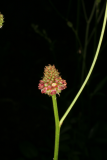
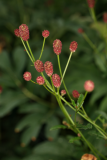
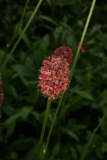
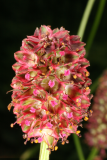
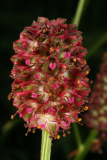
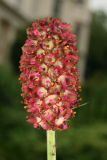
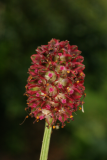
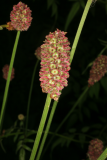
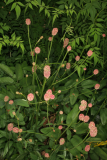
 - Copy.JPG)
 - Copy.JPG)
 - Copy.JPG)